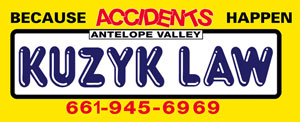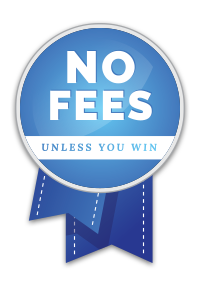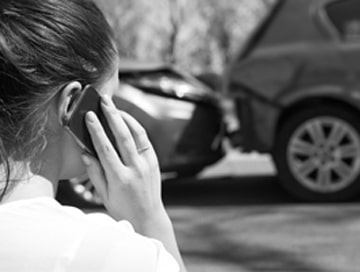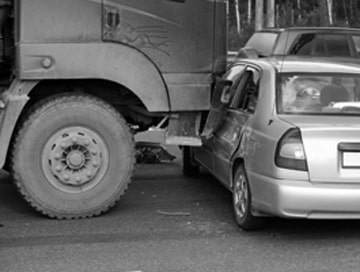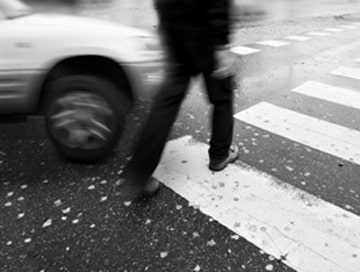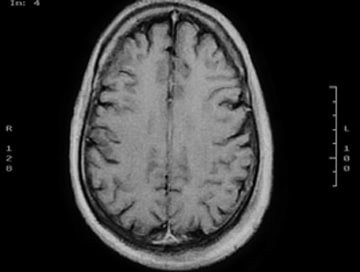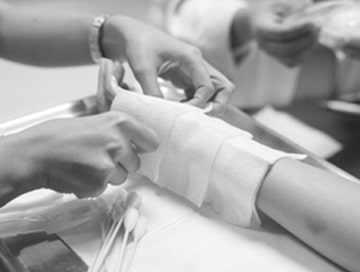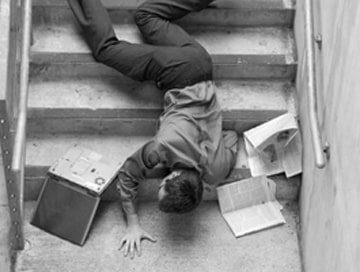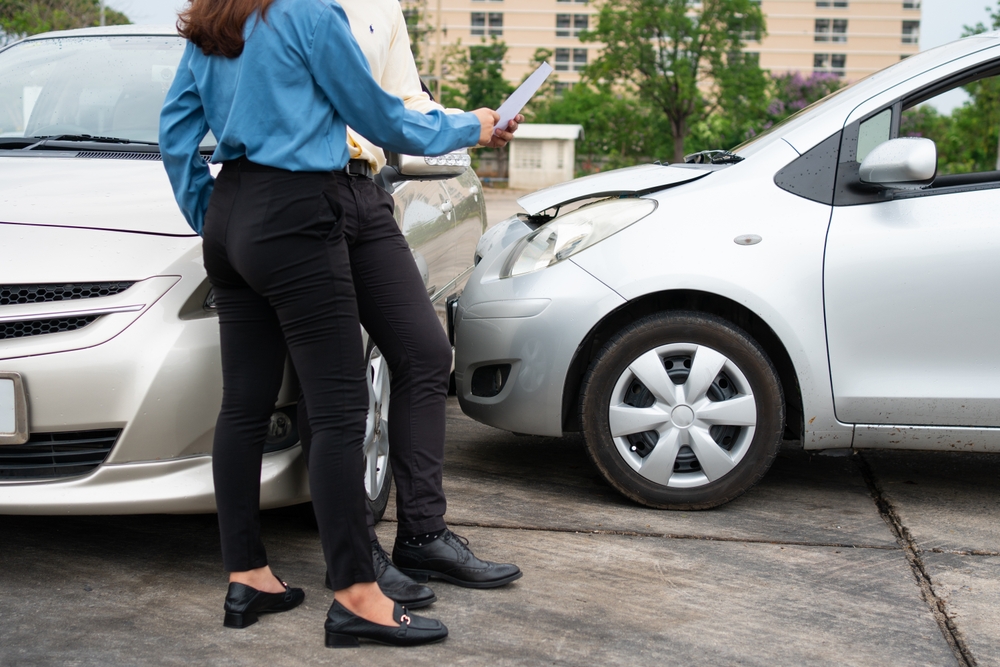
Navigating the Legal Maze – Understanding Uber Accident Claims in California
Several ridesharing services like Uber have emerged across California in recent years to transform how people commute and offer convenient transportation at the tap of a button. Yet, although this brings convenience, there’s also the potential for crashes, and it’s important to understand how to navigate Uber accident claims in California. What do you need to know about these ridesharing services, any relevant legislation, insurance, and other issues?
Understanding Ridesharing Services in California
Ridesharing services across the State operate on a “peer-to-peer” model. This is meant to connect drivers and passengers directly, and the drivers will use their personal vehicles to transport individuals from point to point. Services like Uber (as well as Lyft and similar platforms) have transformed what was effectively just a taxi-oriented business. However, the solution has also given rise to legal challenges, and it’s important to understand the nature of the relationship between the ridesharing company and the driver.
Detailing the Driver-Employer Relationship
One of the standout features of a ridesharing service is the way that it classifies its drivers and independent contractors instead of employees. Typically, the taxi company would employ a taxi driver and not treat them as an independent entity from a legal point of view.
This has far-reaching implications when the company classifies its employees as independent contractors. It can impact subjects such as benefits, working hours, and legal responsibility.
Uber’s independent contractors have much greater flexibility in how much they work as part of their overall daily schedule. In other words, they’re not required to respond to a particular person in need of transportation. However, prior to some recent legislation, they couldn’t receive any traditional employee benefits either, including workers’ compensation protection, health insurance, or retirement plans.
How This Arrangement Can Complicate Legal Claims
As a rideshare driver is an independent contractor, this can introduce a layer of complexity when it comes to any legal claims. In the case of the taxi industry, the employer would bear a share of the responsibility for the actions of their employees while that individual was performing a job-related task. An Uber driver is now considered self-employed, which can create a gray area when accidents or legal disputes occur.
So, in the event of an accident that may have caused an injury, where a rideshare driver is involved, there’s often a nuanced process in determining responsibility or liability. However, drivers must carry their own insurance, and Uber insurance may come into play while the driver is actively engaged in providing a service to the platform.
The Responsibility of the Company
Usually, the ridesharing company will provide a layer of insurance coverage for their drivers as part of the company’s overall policy. However, the coverage varies depending on the activity status. So, when a driver is offline (as they would be in between jobs), their personal insurance will likely be primary. The situation may change once the driver accepts a ride request and is on their way to a pickup or is actively transporting some people. In this situation, the ridesharing company’s insurance policy would certainly come into the picture.
Sometimes, this dual approach to insurance can create complexities. It’s not unusual for an insurance company to dispute the claim or attempt to shift their responsibility. On occasion, the personal insurance policy carried by the driver may not be enough to adequately cover their activities. It’s important to remember that a typical car liability insurance policy will not cover any commercial activities. Transporting passengers for profit is, of course, a commercial activity, which could lead to potential gaps in coverage in certain circumstances.
How the State Regulates Ridesharing Activities
California’s State government has been taking a closer look at ridesharing in general from a legal perspective. They’ve been trying to develop legislation to address some of the challenges that may arise, leading to documents such as Assembly Bill 5 (AB5).
Assembly Bill 5
AB5 has far-reaching implications for not just Uber drivers but the “gig” economy in general. This bill was passed in 2019 and is designed to determine whether a worker is indeed an independent contractor or an employee.
The bill requires employers to conduct a test known as the “ABC test.” This asks whether the individual is free from the control and direction of the hiring entity when it comes to the performance of the work (both in contractual terms and in fact). It also asks whether the person performs work that is outside the usual type of business for the hiring entity. Lastly, the test asks if the person primarily works in an independent manner or as part of a business with the same nature as that of the current work.
However, this legislation faced a lot of pushback from ridesharing companies and drivers alike.
Proposition 22
Eventually, the matter went to a public ballot known as “Proposition 22.” The outcome gave those involved drivers the freedom to maintain independent contractor status by granting them certain benefits without full employee classification. So, the drivers can get certain healthcare subsidies and accident insurance coverage from the company. But they can still maintain their position as an independent contractor with the flexibility to set their own schedules and work for multiple platforms if they want to.
California Public Utilities Commission Rules
The industry may also be subject to California Public Utilities Commission (CPUC) rules. Certain regulations offer a legal framework within which ridesharing services must operate throughout the State. Most of these regulations cover public safety issues but also cover matters like driver background checks.
Crucially, they also insist the drivers are covered by insurance in the case of an accident. Within the rules, the ridesharing company must hold a commercial insurance policy with a minimum of $1 million per incident accident coverage.
What Uber Insurance Requirements Does the Company Provide for Their Drivers?
To understand any insurance cover that Uber may give to its drivers, it pays to understand the different “states” that an Uber driver can be in while they are engaged with the company’s app, which is the sole means of communication between drivers and potential customers.
When an Uber driver is offline but may be driving the vehicle, their own personal auto insurance is primary. In line with California law, these drivers must maintain personal automobile insurance with a mandatory minimum level. Under California Insurance Code Subsection 11580.1b, the minimum liability insurance requirements are $15,000 for injury or death to one person, $30,000 for injury or death to more than one person, and $5,000 for damage to property. This insurance will compensate a person other than the policyholder for personal injury or property damage. Note that a driver can choose to lodge a cash deposit of $35,000 with the DMV instead of holding a motor vehicle liability insurance policy.
The insurance situation changes when a driver is online and available for a trip. Here, the company’s third-party liability insurance will kick in to cover the cost of injuries or damage in the event of an accident. The company will provide coverage of $50,000 per person and $100,000 per accidental injury, as well as $25,000 in property damage per accident.
When the driver is on their way to pick up a client or actually has a paying customer on board, the situation changes again. In this case, Uber maintains an insurance policy that will cover at least $1 million for property damage and injuries to riders or third parties in accidents where the Uber driver is at fault. Furthermore, this insurance will cover the vehicle repair cost up to the actual cash value, although with a $2,500 deductible. However, this is contingent on the driver’s personal insurance including comprehensive and collision coverage.
Drivers may also be able to purchase optional injury protection to cover any medical expenses they may incur if they are hurt in an accident.
Separately, Uber may also provide rideshare insurance in California for drivers and passengers should they be injured in a hit-and-run accident that an uninsured or underinsured driver caused.
What to Do in the Event of an Uber Accident
As you can see, much will depend on the status of the driver at the moment an accident occurs. Each scenario could have different implications for both insurance coverage and ultimate liability.
In the event of an accident, the first priority must be the safety of all concerned. If there were any injuries, these should be addressed right away, and it’s crucial to place a call so that law enforcement agencies can attend. This will enable them to create a police report containing all the details of the accident and give information that could help determine responsibility.
As in the case of any accident, you should get as much information as possible yourself. Take photos, if you can, from different angles and distances, showing the damage to the vehicle and any other contributory factors, such as debris on the road and other involved vehicles.
If your car was involved in a crash with an Uber driver’s vehicle, you should immediately notify your insurance company and tell them the details. You should then talk with a car accident lawyer who will be able to explain your rights and help you file a claim for compensation.
How to Get Uber Settlement Money
If you were a passenger in an Uber and may have suffered injuries as a result of an incident, you may want to know how to get the settlement money. In these cases, it is best to deal with a lawyer who specializes in Uber claims.
As explained earlier, much will depend on the circumstances of the incident and whether the driver of the vehicle was offline, online, or transporting someone as a customer. In principle, you would sue the driver directly as an independent contractor if you were in the car and injured following an accident caused by the driver’s negligence. However, Uber insurance may also come into play in that exact circumstance, and you may also need to talk with the company’s insurance provider. Again, a car accident lawyer can advise you on how best to proceed.
Remember that Uber is responsible for ensuring that passengers are as safe as possible when a registered Uber driver is transporting them. In some cases, they may have some liability if they fail to do a proper background check on the driver, which may have revealed prior issues with unsafe driving.
How Much Could You Recover after an Uber Accident?
The sum that you can recover will depend on many factors. These will include the specifics of the accident, the extent of your injuries, and the impact of the accident on your future life and finances. Should the case sadly result in a fatality, family members may be able to claim additional sums through a wrongful death determination. The result may also depend on the limits set on the insurance policy or policies in effect and the status of the driver at the time (online/offline/transporting).
Usually, you can seek compensation for medical expenses, lost wages, pain and suffering, or property damage, and in cases like these, it’s a good idea to seek a lawyer specializing in Uber car accidents. They’ll help you to file Uber accident claims if necessary.
Working with an Uber Accident Claims Specialist
In Fresno, Kuzyk Law specializes in car accident claims, and someone from the company can assist you in many ways. They can go through your case during the first consultation to decide on a path forward and then help you negotiate a better settlement with the insurance carrier or carriers.
Kuzyk Law has a good record of success in these areas and can help you get accident compensation that is rightfully yours. We have the resources to investigate your case and work with expert witnesses to help take on an insurance company or represent you in a trial.
To get a better chance of getting a good outcome for your Uber accident lawsuit, you’ll want to work with a company that has a legacy of compassion and excellence. More than 80% of Kuzyk clients come through referrals from satisfied individuals, which is a testament to the company’s unwavering commitment to a client’s well-being.
So, contact your Fresno personal injury attorney today to explore your compensation options and ensure that your rights are properly upheld according to California law. Your first consultation with us will be completely free, and you can reach out using an online form or call (661) 465-3375 instead. You can also get information through the medium of Spanish.
